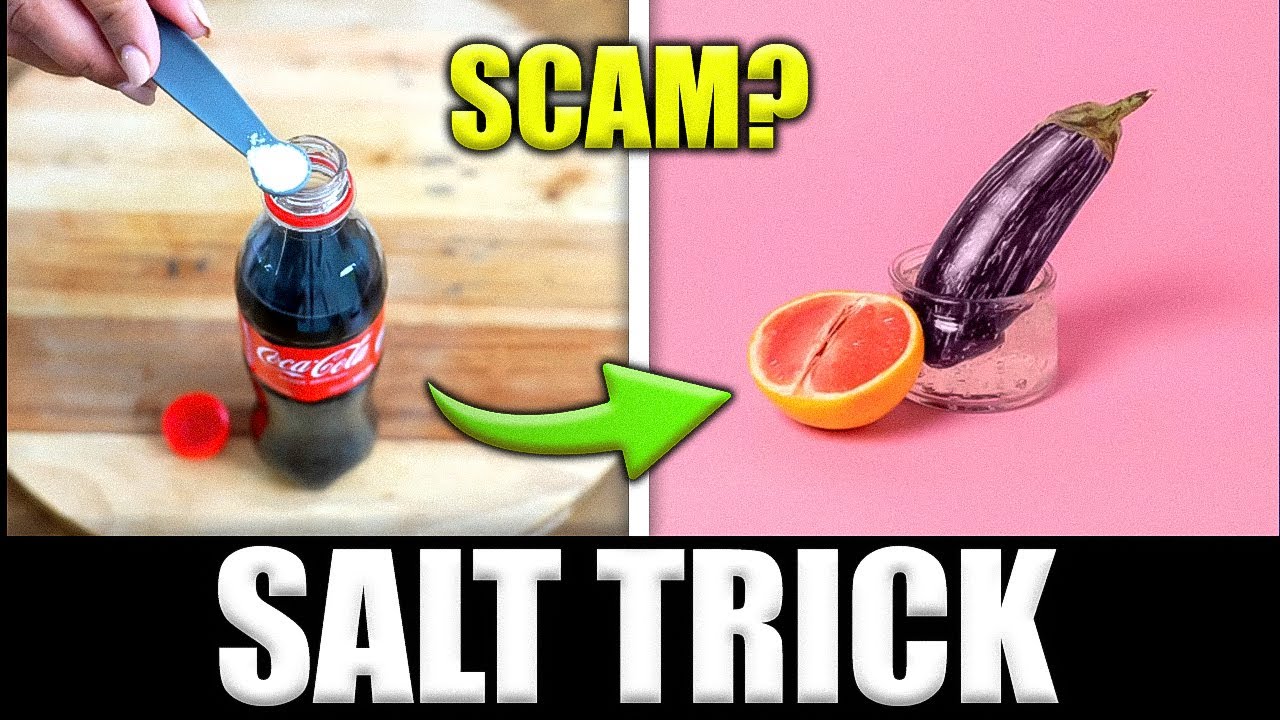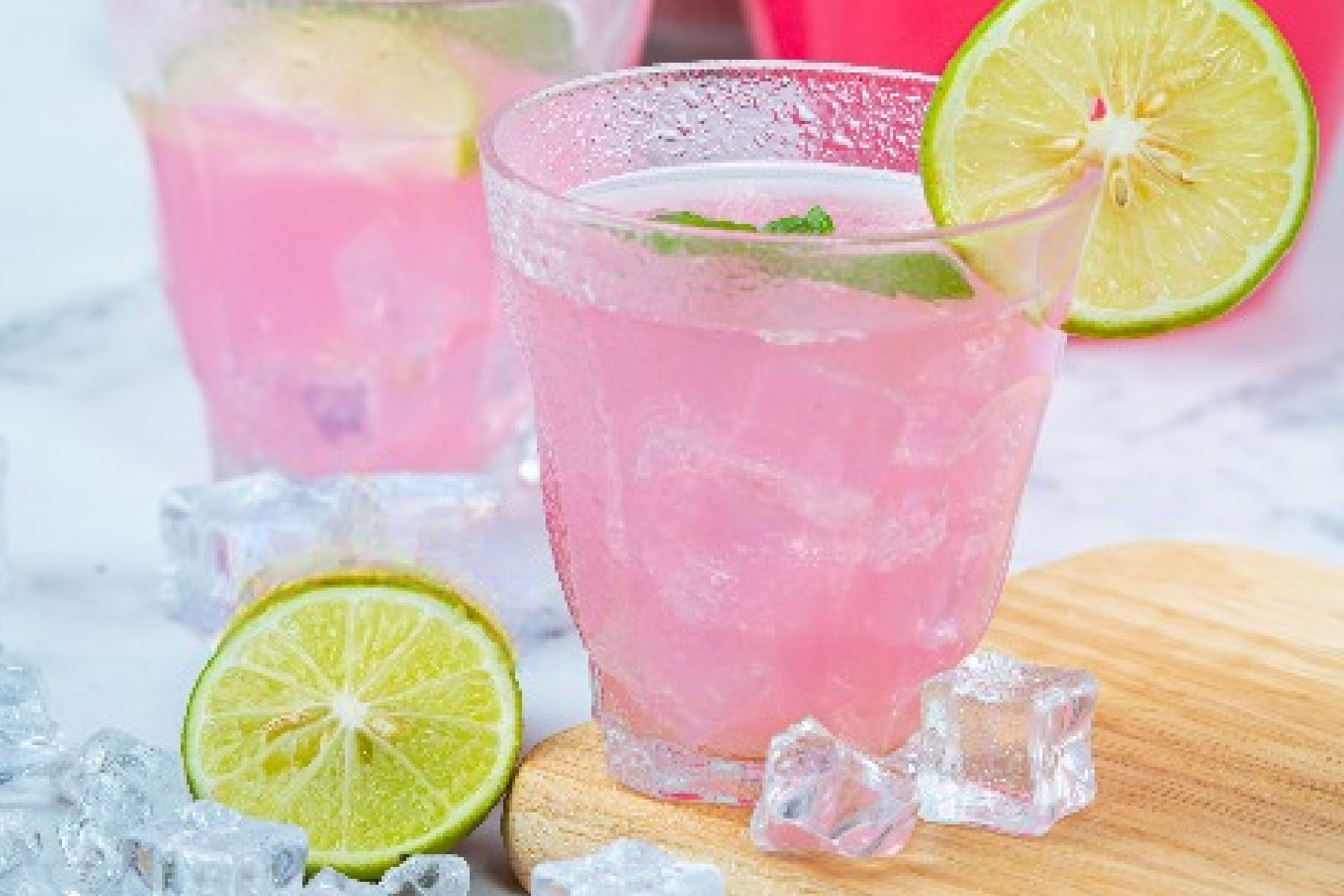Is There A Salt Trick? Unlocking The Secrets Of Salt For Health, Cooking, And More
Have you ever wondered if there's a "salt trick" that could revolutionize your cooking, health, or even household routines? Salt has been a staple in human history for centuries, but its uses extend far beyond seasoning food. From ancient times to modern science, the power of salt continues to amaze us. In this article, we'll explore the fascinating world of salt and uncover whether there truly is a "salt trick" that can benefit your life.
Whether you're a home cook looking to elevate your recipes, someone seeking natural remedies, or simply curious about the versatility of salt, this article will provide you with all the answers. We'll delve into the science behind salt, its health benefits, culinary applications, and even unconventional uses that might surprise you.
So, if you've ever asked yourself, "Is there a salt trick?" you're in the right place. Let's dive into the world of salt and uncover its secrets together!
Read also:Discover The Charm Of Il Posto A Hidden Gem For Your Next Getaway
Table of Contents
- The History of Salt: A Journey Through Time
- Salt Trick in Cooking: Enhancing Flavor Like a Pro
- Health Benefits of Salt: Myth or Reality?
- Salt Trick for Household Uses: Cleaning and Maintenance
- Types of Salt: Which One Should You Use?
- Salt Trick for Skin and Beauty: Natural Remedies
- The Science Behind Salt: How It Works
- Myths About Salt: Separating Fact from Fiction
- Sustainability of Salt: Ethical Choices
- Conclusion: Is There Truly a Salt Trick?
The History of Salt: A Journey Through Time
Salt has played a pivotal role in human civilization for thousands of years. Archaeological evidence suggests that salt was used as early as 6,000 BC in China. Ancient civilizations, such as the Egyptians, Romans, and Greeks, recognized its value not only as a seasoning but also as a preservative and currency.
In fact, the word "salary" is derived from the Latin word "salarium," which refers to the money given to Roman soldiers to buy salt. Salt was so valuable that it was often referred to as "white gold." Even today, the phrase "worth his salt" is used to describe someone who is competent and deserving of respect.
Why Was Salt So Valuable?
Salt's importance stemmed from its ability to preserve food, which was crucial in an era before refrigeration. It was also essential for human health, as it helps regulate fluids and maintain proper muscle and nerve function. Additionally, salt was used in religious ceremonies and as a symbol of purity and trust.
Salt Trick in Cooking: Enhancing Flavor Like a Pro
Chefs and home cooks alike know the power of salt in transforming a dish. But is there a specific "salt trick" that can take your cooking to the next level? The answer is yes! Proper salting techniques can enhance flavors, improve texture, and create a more balanced taste profile.
Key Salt Tricks in the Kitchen
- Salt Early: Adding salt during the cooking process allows it to penetrate the food and enhance flavors from within.
- Use the Right Type of Salt: Different salts, such as kosher salt, sea salt, and table salt, have varying textures and mineral content, affecting the taste of your dish.
- Season with Your Hands: Sprinkling salt with your fingers ensures even distribution and control over the amount used.
- Try the Salt Rim Trick: For cocktails like margaritas, a salt rim can add a tangy, savory kick to your drink.
Health Benefits of Salt: Myth or Reality?
While excessive salt consumption has been linked to health issues like hypertension, moderate salt intake is essential for maintaining bodily functions. Salt contains sodium and chloride, two vital minerals that support nerve transmission, muscle function, and fluid balance.
Key Health Benefits of Salt
- Regulates electrolyte balance
- Supports healthy digestion
- Improves hydration
- Enhances nutrient absorption
According to the American Heart Association, the recommended daily sodium intake is 2,300 mg, with an ideal limit of 1,500 mg for most adults. However, individual needs may vary based on factors like age, activity level, and health conditions.
Read also:Xhamster Tifton Explores Unveiling The World Of Exploration And Adventure
Salt Trick for Household Uses: Cleaning and Maintenance
Did you know that salt can be a powerful ally in your household cleaning routine? From removing stains to de-icing sidewalks, the versatility of salt makes it an indispensable tool for maintaining a clean and functional home.
Top Salt Tricks for Household Uses
- Remove Stains: Mix salt with water to create a paste and apply it to stains on fabric or carpet.
- De-Ice Sidewalks: Sprinkle salt on icy surfaces to prevent slipping and make shoveling easier.
- Clean Cutting Boards: Rub salt onto wooden cutting boards to sanitize and remove odors.
- Revive Sponges: Soak sponges in a saltwater solution to extend their lifespan and keep them fresh.
Types of Salt: Which One Should You Use?
Not all salts are created equal. Understanding the differences between various types of salt can help you make informed choices for your cooking, health, and household needs.
Common Types of Salt
- Table Salt: Refined and iodized, ideal for everyday use.
- Kosher Salt: Coarser texture, perfect for cooking and seasoning.
- Sea Salt: Harvested from evaporated seawater, offers a unique flavor profile.
- Himalayan Pink Salt: Contains trace minerals and is prized for its aesthetic appeal.
Salt Trick for Skin and Beauty: Natural Remedies
Salt isn't just for cooking and cleaning; it can also work wonders for your skin and beauty routine. Salt scrubs, baths, and masks are popular natural remedies that can exfoliate, detoxify, and rejuvenate your skin.
Benefits of Salt for Skin and Beauty
- Exfoliation: Salt granules gently remove dead skin cells, leaving your skin smooth and radiant.
- Detoxification: Salt baths help draw out toxins and reduce inflammation.
- Hydration: Salt-rich products can lock in moisture and improve skin elasticity.
The Science Behind Salt: How It Works
Salt's effectiveness lies in its chemical composition and physical properties. Sodium chloride, the primary component of salt, interacts with water molecules to create ionic bonds that influence taste, texture, and functionality.
When salt dissolves in water, it separates into sodium and chloride ions, which can affect the structure of proteins, fats, and carbohydrates. This is why salt enhances flavors, preserves food, and even acts as a cleaning agent.
Myths About Salt: Separating Fact from Fiction
There are many misconceptions about salt, ranging from its health effects to its culinary applications. Let's debunk some of the most common myths:
Common Salt Myths
- Myth: All Salt Is Bad for You: Truth: Moderate salt intake is essential for health.
- Myth: Salt-Free Diets Are Always Healthier: Truth: Extreme restrictions can lead to deficiencies.
- Myth: Sea Salt Is Healthier Than Table Salt: Truth: Both contain similar sodium levels, but sea salt may offer trace minerals.
Sustainability of Salt: Ethical Choices
As consumers become more conscious of environmental impact, the sustainability of salt production is gaining attention. Traditional salt harvesting methods, such as solar evaporation, are eco-friendly and preserve natural resources.
Choosing sustainably sourced salt not only supports ethical practices but also ensures that you're using a product that aligns with your values. Look for certifications or labels that indicate responsible production methods.
Conclusion: Is There Truly a Salt Trick?
In conclusion, the "salt trick" is real and multifaceted, offering benefits in cooking, health, household maintenance, and even beauty. From enhancing flavors to improving skin health, salt remains a versatile and indispensable ingredient in our daily lives.
We encourage you to explore the many uses of salt and experiment with different techniques to find what works best for you. Don't forget to share your experiences and insights in the comments below. For more informative articles like this, stay tuned and explore our other content. Together, let's uncover the hidden secrets of everyday life!
Article Recommendations


